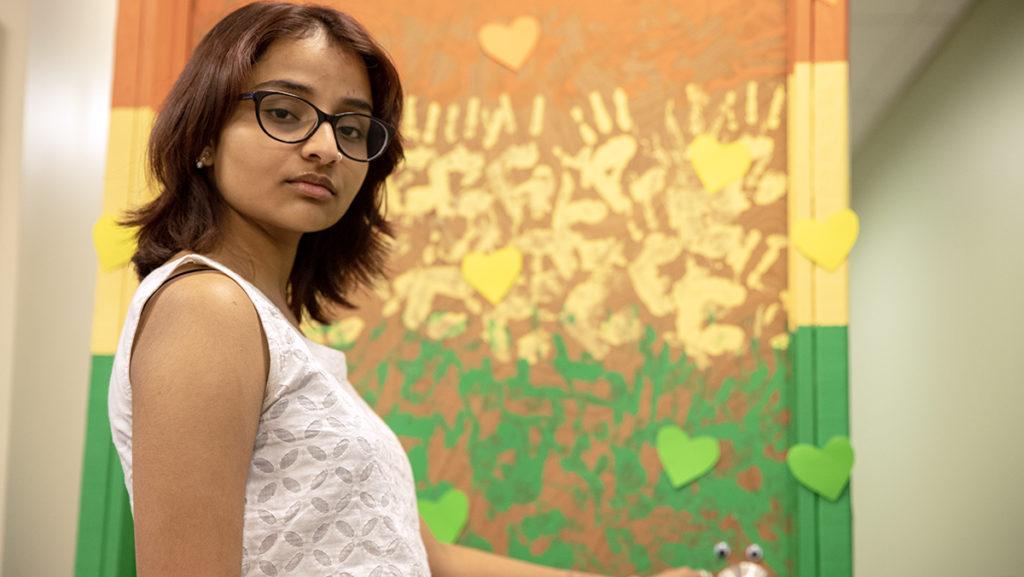Editor’s Note: This is a guest commentary. The opinions do not necessarily reflect the views of the editorial board.
When asked to write a commentary on the legalization of same-sex marriage in India, the first thing I wanted to do was call my family and tell them all about it. But I had to stop myself from doing that because to this day my family has no idea who I am.
The fight for the legalization of same-sex marriage in India has been going on for decades. In 2018, India’s Supreme Court decriminalized homosexuality by striking down Section 377. Before this ruling, any homosexual act was punishable by up to 10 years in prison. I can never forget the day of the hearing. I remember my eyes were glued to the TV screen and I kept switching between different news channels, and I just sat there in silence because I knew how much impact that day was going to have on my life. I was trying to pay attention to what was being said, but the thought, “Will I remain closeted for the rest of my life and live in fear, or will I finally be able to live my truth?” was louder than all the other voices. I still sometimes think about that day. What would have happened if things didn’t go the way they did? Who would I be?
Homophobia and transphobia exist both on small and large scales in India. The smaller scale is what the LGBTQ+ members face socially — by the people around them, like their families and friends. The larger scale is what they face from the nation’s laws.
Earlier this month, the Supreme Court ordered the lower courts to transfer all the legal petitions filed by LGBTQ+ couples and activists seeking recognition of same-sex marriage to the top court. The lead petition was filed by a gay couple, Supriyo Chakraborty and Abhay Dange, which stated that denying these couples equal rights prevents them from not only getting pensions but also from being able to start a family through adoption. Although the Supreme Court remains unbiased and just, the same cannot be said for the central government.
Prime Minister Narendra Modi’s government has opposed the recognition of LGBTQ+ members and same-sex marriage in the past. The Supreme Court has given the federal government until Feb. 15, 2023, to decide where they stand with this matter, as the court will be hearing arguments on March 13. If the government opposes, then the Supreme Court has to hear the opposing side’s argument. However, with no opposition the court can move forward with the case.
People justify being discriminatory toward LGBTQ+ people by saying that “homosexuality is against the Indian Culture.” However, historical pieces of evidence, like the Kamasutra, indicate how homosexuality has been a part of our culture for thousands of years. Not only that, but traditional religious narratives such as the Vedas, Mahabharata, Ramayana and Puranas talk about transgender people. LGBTQ+ members were not considered inferior in any way until the 18th century when the British Crown established its rule in India.
A few weeks ago, Rashtriya Swayamsevak Sangh (RSS) chief, Mohan Bhagwat, backed the LGBTQ+ community by saying, “LGBT/Transgender issues are not new issues; they have always been there. These people also have a right to live. Without much hullabaloo, we have found a way, with a humane approach, to provide them social acceptance, bearing in mind they are also human beings having inalienable right to live.” The reason why this comes as a surprise is because RSS is a right-wing Hindu nationalist organization that is the parent organization of Bharatiya Janata Party, the ruling party of India. Bhagwat’s remarks can be a game changer for this hearing because the central government cannot use religion or culture as an excuse to deny these rights anymore.
Somehow, I feel like that 14-year-old, closeted queer child again. I thought it would’ve gotten easier by now. Taking into consideration that I’m a full-grown adult now who’s comfortable with their sexuality. But the uncertainty is back again. The thought that if one day I wish to marry a woman and start a family, I would not be allowed to, is louder than everything that’s on the news, just like before.
India needs to legalize same-sex marriage. This fight has been going on for far too long and even if the court legalizes it, it won’t end there. It will take our society years and years to finally be able to adapt to this change. So the first step is for the law to ensure that LGBTQ+ people are given basic human rights and security, just like any other individual in the country.














